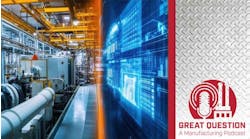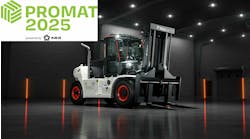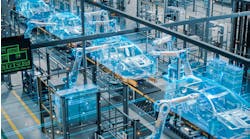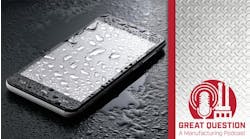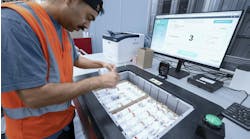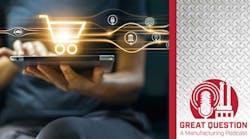Podcast: How Digital Commerce Can Help Mid-Market Manufacturers Scale Smarter
Many mid-market manufacturers grapple with how to best adopt digital strategies to scale effectively. In this episode, I discussed this challenge with Vera Nieuwland, Director of Digital Transformation Services at Kaufman Rossin. With over 15 years of experience driving digital transformation across diverse sectors, including manufacturing, distribution, and retail, and having led projects focused on digital growth and customer experience, Vera brought a wealth of practical knowledge to our conversation. She broke down the benefits of digital commerce, the crucial role of AI, and offered actionable advice for manufacturers ready to embrace these technologies for smarter growth.
Below is an excerpt from the podcast:
NED: So, to start off, can you walk us through what B2B digital commerce means?
VN: Definitely. Digital commerce essentially means creating a digital channel for businesses, for their customers to purchase products and services and to really engage with their business. But it goes beyond online selling and commercial operations, so it's also an approach to really start digitalizing the entire organization, become more data-driven, and eventually it can unlock new business models and opportunities for growth.
NED: Can you explain then why now is the right time for mid-market manufacturers to invest in digital commerce? And what's maybe considered at stake if they don't make that change?
VN: Yes. If you think about e-commerce for retailers, the shift has really been happening for probably over 25 years. So for reference, Amazon was founded in [19]94, right? Which seems so long ago, but it has accelerated significantly in the past decade. And this was about the time that in the business-to-business e-commerce space, things had really started picking up for manufacturers and others across industries, like for example distributors but also healthcare providers and bankers. But it has really been the large manufacturers and distributors so far that have been on this journey, and less manufacturers in the mid-market. So today, B2B commerce is evolving very rapidly but still around 30% of manufacturers offer no e-commerce at all. Even among those that do, many of those are not fully utilizing their digital channels or operations. And meanwhile, it's expected that this year, in [20]25, more than half of large B2B purchases will be processed through digital channels. It's really a great opportunity for the mid-markets to further use today's technology to explore this opportunity to drive their growth and further drive efficiency through their operations.
NED: Yeah, even though it's only 30%, that's still a huge chunk of the market that's not adopting fully into this. So with the shift that's happening and with most of these purchases being expected to be made digitally going forward, how are the buyer expectations in the B2B market shifting along with this change, and what lessons can manufacturers take from digitally native brands?
VN: A lot of what's actually driving this shift and this need for this shift is also the buyer expectations that you just mentioned. Many buyers of today, also in the B2B space, are millennials—which we've always referred to as the digital native generation. So, I think over 70% of current B2B buyers are estimated to be millennials. If you think about Gen Z, and I don't know if you have a lot of Gen Z around you, but they're so much more digitally native even than millennials. They're growing up. They went to College in the age of ChatGPT and they don't want to get on the phone. So both of these generations really expect seamless digital-first purchasing and experience. They're way more used to self-service buying options, real-time updates into when they can expect their orders, and insight into product availability and pricing. Overall, they just expect some more fast and frictionless experience in their purchasing. That shift in expectations is really what’s driving both a need as well as an opportunity for e-commerce in the B2B space.
NED: It's very clear there's a demand, especially with Gen Z, and I think the market isn't so much changing as I think it's already changed fully. With that huge demand for the B2C experience across any market and B2B spaces for purchases, what would you say are the biggest barriers to adopting digital commerce, and how can companies use AI and automation to help overcome those barriers?
VN: Right. So, actually, let's go back to part of your question before because I kind of skipped over that, but you mentioned what can manufacturers take from digitally native brands and I think it's an interesting topic. I used to do a lot of work with larger companies in their B2B digital commerce projects and like I mentioned before, a lot of them have been investing in e-commerce for a while but a few years ago I started working with smaller digitally native brands that, for example, sell on Shopify, Amazon, and other marketplaces. We've really seen a big boom around those types of brands—everyone can start their brands in the current digital age. It was really remarkable to see how some of these brands run their business—really taking a digital-first approach to everything they do. So there's multimillion dollar brands that are run by single founders or really small lean teams because they're using all these smart tools available across all of their operations. With today's accessibility to technology and a much lower barrier to entry, I think there's this opportunity for mid-market manufacturers to really take a lesson from the playbook of digitally native brands and start to digitize parts of their business. It does not need to be this massive transformation that some of the larger enterprises are invested in, if that makes sense.
NED: Yeah, it definitely does. With the rise of modern AI, I keep reading about companies working on developing, advancing what they're calling AI agents which are just AI chat bots, but for websites, for commerce, or not. It acts as an extra customer service arm and that is advancing very rapidly and becoming a very easy thing that can be implemented into anyone's site.
VN: Exactly. And that's a really good point in terms of the biggest barriers to adopt and where to start, because the example that you just mentioned—AI agents for customer service—they're so accessible at the moment and they can really create a lot of efficiency just within the customer service function. If you can take half of the work that the current customer service team currently does and replace that with chatbots, which are super conversational these days, it can really take a lot of that work and offload it, letting the customer service team spend more time connecting the dots on customer insights that they're seeing on product improvements helping customers, serving customers in a more strategic way, and lift up moments of the light in the customer experience.
About the Podcast
Great Question: A Manufacturing Podcast offers news and information for the people who make, store and move things and those who manage and maintain the facilities where that work gets done. Manufacturers from chemical producers to automakers to machine shops can listen for critical insights into the technologies, economic conditions and best practices that can influence how to best run facilities to reach operational excellence.
